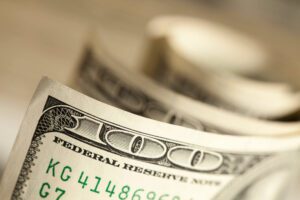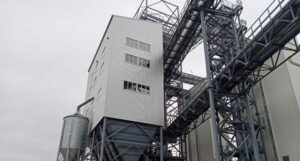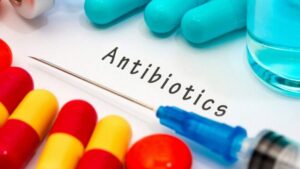
The Cabinet of Ministers approved the attraction of another grant from the United States in the amount of $4.5 billion, Prime Minister Denys Shmyhal said.
“The Cabinet of Ministers will approve the attraction of another grant from the United States in exchange for $4.5 billion, ” Shmyhal said at a government meeting on Tuesday.
According to the Prime Minister, this is a clear demonstration that the allies continue to help Ukraine bring victory closer.
Shmyhal said that the funds would be received through a fund created by the World Bank.

Grain Capital Group of Companies has started the installation of technological equipment at a silo with a capacity of 21,500 tonnes, which it is now building on the territory of a feed mill in Ivano-Frankivsk region.
We are talking about installing a line for receiving, drying and storing grain, the company said on its Facebook page on Tuesday.
According to the agreement, in the near future the company will install transport and gravity equipment, a grain hopper with a cone bottom, a grain separator with an aspiration system, and silos with cone and flat bottoms.
As reported with reference to First Deputy Minister of Agrarian Policy and Food of Ukraine Taras Vysotsky, this season in Ukraine there may be a shortage of elevator capacities for storing 10-15 million tonnes of crops.
According to the KSE Institute, during the war, the Russian invaders damaged or completely destroyed 4 million tonnes of containers for storing agricultural products. Another part of the granaries are located in the temporarily occupied territories.
Grain Capital is a Ukrainian manufacturer and service provider in the field of storage and processing of grain, it includes Plant of Elevator Equipment and Grain Capital – Engineering. The Group operates in Eastern Europe with headquarters in Odesa.
It collaborates with a network of global partners such as Bonfanti, Westeel, Siemens, Moeller, Schneider Electric, Camozzі, Garden Denver, SEW Eurodrive, Motovario, SKF, etc.

Trident Consulting, known as Cushman & Wakefield Ukraine – the country’s leading commercial real estate consulting company, will cease operations on July 31 this year, Nick Cotton, Managing Director of the company, said in Linkedin.
“It is with great regret that after 28 years of continuous operation in Ukraine, we have had to make this difficult decision. Following the Russian invasion of Ukraine on February 24 this year, the vast majority of current assignments were either canceled or suspended indefinitely. Unfortunately, despite our best efforts, Continued work is simply not possible,” he wrote to Linkedin.
13 former Trident Consulting professionals have taken on positions in Cushman & Wakefield’s wider international network, he said.
“Some of the remaining former employees in Ukraine are creating a new consulting company under a new name, and we wish them every success. Our thoughts and continued support are with everyone who remains in Ukraine,” he wrote.
Cotton himself has returned to London and works for Cushman & Wakefield.
Cushman & Wakefield (New York Stock Exchange: CWK) is a leading international commercial real estate advisory and agency firm.

Pharmacies with a sickle to dispense antibiotics for a prescription, vineyards – to cover the territory, areas for carrying out combat activities for the military hour, having called the Minister of Health Protection Viktor Lyashko.
“A pharmacist can dispense an antibiotic in a pharmacy in three ways: for an electronic prescription (for example, a pharmacy is connected to the electronic health care system, ESOS), for a paper prescription, that informational supplement, so that during the transitional period it will be added to the official document,” at the second.
Lyashko adding that the patient can get an antibiotic for a prescription from any pharmacist, for whom it is enough to show the pharmacy practitioner a proof or a paper prescription.
“Implementation of this solution is one of the best ways to counteract the global problem of antibiotic resistance, and I can also give you some information about the recognition of this obligation to fight antibiotics in Ukraine,” the minister said.
At the same time, the Ministry of Health has designated that innovations will be introduced step by step within the framework of the transitional period in medical mortgages, as they are applied from the EPHS. As a pledge to protect health, before which the patient is born, do not connect to the ESOS, the doctor, as before, you can write a paper prescription.
There is more than enough blame for pharmacies that are placed in the areas of military (combat) activities or on time-saving territories, the transfer of which was approved by the decree of the Ministry of Reintegration (https://zakon.rada.gov.ua/laws/show/z0453-22#Text ).
Thus, pharmacies in Timchasovo for the period of the military camp can and have given prescription antibacterial drugs to patients without a doctor’s prescription, the Ministry of Health clarified.
Such a navigation of the norm is permitted by the reception of the recipes, the pydrodrzlams of the Zbroyshany forces, the volunteer that is a benevolence of the organized survey at the submarine, the yaki may for the provagnita of the Vobrobnitsa, the wholesale of the Torgovyki

President of Ukraine Volodymyr Zelensky stressed the importance of creating a parliamentary commission to control foreign weapons.
“It is very important that the Verkhovna Rada of Ukraine today implemented the initiative of the head of the Office of the President Andriy Yermak to create a special commission to control the use of weapons provided by our partners,” he said in a video message on Tuesday evening.
“The commission included representatives of all factions and groups of parliament. I want to emphasize that there was not a single ground for any claims to our state in this regard. Our partners are fully aware of how we use the provided weapons. But in order to remove any manipulations by Russian propagandists and those who help them in Ukraine or somewhere else, such an additional parliamentary instrument of control will work,” Zelensky said.